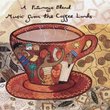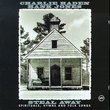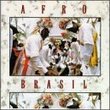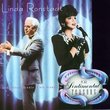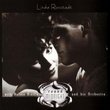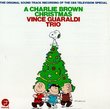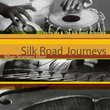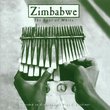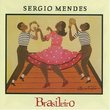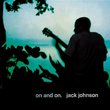| All Artists: Habib Koite & Bamada Title: Baro Members Wishing: 0 Total Copies: 2 Label: Putumayo World Music Release Date: 7/24/2001 Genres: International Music, Pop Style: Africa Number of Discs: 1 SwapaCD Credits: 1 UPCs: 790248019222, 5413820000085 |
Search - Habib Koite & Bamada :: Baro
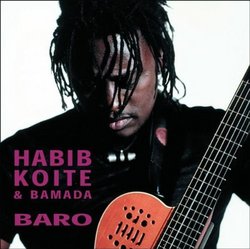 | Habib Koite & Bamada Baro Genres: International Music, Pop
Now with his third album, Habib Koité has grown into a real triple threat. Not only is he a superb songwriter and singer, he's also a trained guitarist of remarkable style and invention, whose playing inspiration ... more » ![header=[] body=[This CD is available to be requested as disc only.]](/images/attributes/disc.png?v=15401716) ![header=[] body=[This CD is available to be requested with the disc and back insert.]](/images/attributes/disc_back.png?v=15401716) ![header=[] body=[This CD is available to be requested with the disc and front insert.]](/images/attributes/disc_front.png?v=15401716) ![header=[] body=[This CD is available to be requested with the disc, front and back inserts.]](/images/attributes/disc_front_back.png?v=15401716) |
Larger Image |
CD DetailsSynopsis
Amazon.com Now with his third album, Habib Koité has grown into a real triple threat. Not only is he a superb songwriter and singer, he's also a trained guitarist of remarkable style and invention, whose playing inspiration comes from native instruments, such as the harp-like kora--he often imitates its rippling runs--or the lute-like n'goni. Koité is very rooted, both in his own playing and that of his band, Bamada, but the structure and harmonies of his songs are readily accessible to Western audiences, a move away from the more bluesy idioms of, say, Boubacar Traore. Add to that a lilting, seductive voice, and Koité basically has all the goods in one package. At the same time, this is no compromise album in search of stardom in the West. This is very much the real Mali deal, as is apparent in the last few cuts, when the band switches to a more Wassoulou approach (from the south of the country, and typified by singers like Oumou Sangare), with its harsher, drier tone. But by then you've been won over. Koité is, without doubt, a major talent, and this record could well be his breakthrough to the big time. He's paid his dues and earned his status. The man is a star. --Chris Nickson Similarly Requested CDs
|
CD ReviewsMellow Soothing Upbeat Music Erika Borsos | Gulf Coast of FL, USA | 05/24/2003 (5 out of 5 stars) "Mali is a country near the West Coast of Africa & home to many talented world-class musicians. Habib Koite & his band, Bamada, are among this elite group. This CD consists of *ALL* original compositions and songs written by the artist. The music is ambient, soothing, soulful and very pleasing. It is played on both modern and traditional instruments, making it very authentic. The acoustic guitar, flute, bass guitar, combine with the African instruments, calabassa, kamali ngoni, caragnan, tamani, tamamba, guiro, dum dum & balafon. The Mali language sounds poetic and lyrical ... translations to the songs in the liner notes gives us a cultural perspective to the words & music. We learn that "tere" is a form of superstition that applies to women. Habib sings and asks if men also have "tere", which refers to being given a "sign" or "message". In the song, "No More Cigarette", one wonders if Habib is writing a 'protest' song against the tobacco industry. In effect, foreign countries have created a costly habit which infects the youth of Mali ... We learn that "Baro" is a form of teasing or arguing, a custom of certain ethnic groups in Mali. It is allowed in long-standing relationships where harmony and peaceful coexistence occurs. Habib provides a very delightful song about this custom. We are told "takambes" is a dance from Northern Mali which demonstrates grace and beauty, as a symbol for love, friendship, faithfulness. Habib creates music for this type of movement. The listener feels the message through the harmonies and rhythms created by the instruments & voices. This CD transcends cultures and has universal appeal. The music is uninhibited, lyrical and poetic. Erika B. (erikab93)" HABIB KOITE'S STAR CONTINUES TO ASCEND... Larry L. Looney | Austin, Texas USA | 08/07/2001 (5 out of 5 stars) "On this, his third album, Habib Koite's already formidable talents continue to grow and mature. His singing and songwriting are better than ever, and the overall sound of his band, Bamada, continues to coalesce, proving them to be one of the tightest, most melodic bands to emerge from Africa in the last several years. The arrangements here are slightly mellower than on their last recording, but not less powerful -- still intrinsically African, incredibly rhythmic, but not quite as much 'in your face' with the mix. The result is a polished but authentic serving of the popular music of Mali, mixed lovingly with a touch of what could only be described as Salsa influences.Koite writes and sings from his heart and soul -- even without following the (thoughtfully provided) English transliterations of the lyrics, this honesty of feeling comes across splendidly. In addition to the wonderful songs on this cd, Koite and his band have included three instrumentals. One in particular, 'Roma', is one of the most strikingly beautiful pieces of music I've heard in some time -- at its center is some breathtaking flute work from Habib.There are memorable melodies here -- even without speaking the tongue in which the lyrics are written, I find myself humming bits and pieces of the indivdual tunes during my workday. The songs themselves deal with love (realized and unrequited, romantic and filial), working as a musician in Mali, even a warning to the younger generation about the dangers and follies of smoking cigarettes.There are so many great tracks here, it's hard to recommend one over another -- plenty of reasons for American AOR radio to add this great cd to their playlists. This could be the album to 'break' Habib Koite in the US -- and let him be recognized along with some of the other bright, 'new' African artists, such as Cheikh Lo and Henri Dikongue.If you love great music -- even if you don't consider yourself an afficianado of African music -- pass this one by at your peril!" Melodic Master of Mali Friederike Knabe | Ottawa, Ontario Canada | 03/08/2005 (5 out of 5 stars) "Lose yourself in the soft rhythms of drums, guitar and ngoni and listen to the rich enthralling voice of Habib Koité. These beautiful melodies and their gentle beat will reach deep into your mind... One of my favourites is "Sinama Denw", about the problems of children of co-wives - it goes right under your skin.
Koité, descendant from a "griot" (storyteller) family of long tradition, has created a unique musical style - he has absorbed the different sounds and rhythms from all over Mali and harmonized them into something new. The enthusiastic response he received in his home country from the beginning is proof that his approach is sucessful. Mali, an important centre of music for centuries, has become internationally recognized and revered through artists like Ali Farka Toure, Salif Keita and Oumou Sangare. Habib Koité has deserverdly joined this illustrious group. Those who know the music of Mali will discover hints of familiarity. For those new to it the fabulous "Baro" is an excellent introduction. His songs speak of Mali, the hard work of the farmers, the musicians, and others. He laments the necessity of money these days to buy basic food. He touches on love, family, hope and the natural world. Koité has written and composed all the songs,. The arrangements are shared with his band "Bamada" of long standing. Among them is the current "king of balafon", Kélétigui Diabaté, whose virtuosity on this wooden-key African xylophone comes through without overpowering Koite's exquisite and unusual guitar work. In the accompanying booklet all songs are translated from their original Bambara or Songhai to English and French, allowing the listener to apperciate the lyrics and get a sense of their meaning. Several instrumental tracks add to the rich diversity of rhythms and sounds. [Friederike Knabe]" |

 Track Listings (13) - Disc #1
Track Listings (13) - Disc #1